Ronald C. McCurdy is professor of music in the Thornton School of Music at the University of Southern California (USC), where he served as chair of the jazz department for six years (20022008). Prior to his appointment at USC, he served as director of the Thelonious Monk Institute of Jazz at USC (1999 2001). He is co-author of a vocal jazz improvisation series titled Approaching the Standards . McCurdy wrote, Meet the Great Jazz Legends and contributed chapters to two recent publications: Teaching Music in Performance through Jazz: Vol. I and African Americans and Popular Culture . McCurdy is a consultant to the Grammy Foundation educational programs, including serving as director of the National Grammy Vocal Jazz Ensemble and Combo. McCurdy serves as a consultant and Artistic Board Member to YoungArts. He also serves as director of the Walt Disney All-American College Band in Anaheim, CA. http://www.ronmccurdy.com
Richard E. Goodstein is professor of music at Clemson University and dean emeritus of the College of Architecture, Arts and Humanities. He has been on the Clemson faculty since 1982 and during his tenure at Clemson, he has served as director of the Tiger Marching Band, director of bands, and chair of the Department of Performing Arts. Goodstein served as music director for a number of theatrical productions, such as Rent, Marat/Sade, A Funny Thing Happened on the Way to the Forum, The Music Man , Urinetown , and the 2010 Clemson University Capital Campaign Kick-Off. He also supervised the original score for The Decameron Project , an award-winning theatrical production that traveled to the International Fringe Festival in Edinburgh, Scotland. In addition to his work at Clemson, Goodstein is a consultant for the Walt Disney Co. and served for 11 years as the musical director of the Walt Disney World All-American College Band.
Eric J. Lapin is the director of artistic initiatives for the Brooks Center for the Performing Arts and a senior lecturer of music in the Department of Performing Arts at Clemson University. He teaches courses in applied clarinet, arts administration, and jazz history. As a clarinetist, Lapin has performed with the Piccolo Spoleto Festival Orchestra, the Spartanburg Philharmonic, the Limestone College Wind Ensemble, and has given solo performances for the Greenville Music Teachers Association and the 2012 Clemson University Victor Hurst Academic Convocation. Lapin has presented papers at numerous conferences, hosted research exhibits, published scholarly essays, and was recently named February 2017 Researcher of the Month by the Clemson University Library. In addition, Lapin also serves as a delegate to the Faculty Senate, is a member of the South Carolina Humanities Speakers Bureau, is on the board of directors for the Pendleton Historic Foundation, and is on the University STEAM committee.

The Artist Entrepreneur
Published by Rowman & Littlefield
An imprint of The Rowman & Littlefield Publishing Group, Inc.
4501 Forbes Boulevard, Suite 200, Lanham, Maryland 20706
www.rowman.com
6 Tinworth Street, London, SE11 5AL, United Kingdom
Copyright 2020 by The Rowman & Littlefield Publishing Group, Inc.
All rights reserved . No part of this book may be reproduced in any form or by any electronic or mechanical means, including information storage and retrieval systems, without written permission from the publisher, except by a reviewer who may quote passages in a review.
British Library Cataloguing in Publication Information Available
Library of Congress Control Number: 2019951013
 The paper used in this publication meets the minimum requirements of American National Standard for Information SciencesPermanence of Paper for Printed Library Materials, ANSI/NISO Z39.48-1992.
The paper used in this publication meets the minimum requirements of American National Standard for Information SciencesPermanence of Paper for Printed Library Materials, ANSI/NISO Z39.48-1992.
Contents
Guide
The two most important days in your life are the day you are born and the day you find out why.
Mark Twain
Most artists discover the intrinsic desire to pursue a career in the arts at a young age. Many are attracted to the arts because they heard someone play a musical instrument, went to a Broadway show, attended a dance recital, read an inspirational book, or saw a painting, drawing, or sculpting by one of the masters. Whatever the artistic discipline, most artists knew early in their lives that the arts would play a significant role. Often, even those who chose not to pursue the arts professionally remain active in one capacity or another. Former Secretary of State Condoleezza Rice comes to mind as someone who studied music as a child and young adult, but chose a different profession while maintaining her love for music as a concert pianist. Former major league baseball stars Bronson Arroyo (Boston Red Sox) and Bernie Williams (New York Yankees) have both continued to perform their music long after their baseball careers ended. Williams actually earned Grammy nominations following his successful career as a New York Yankee. Even former President George W. Bush has enjoyed developing his love of painting following his years in the White House. It is true that art is something that chooses you; one does not choose to become an artist.
I knew pretty early on that I was going to pursue music as a profession. Thats what I wanted to do. I never thought about doing anything else. Kenny Barron, jazz pianist, composer, and NEA Jazz Master.
Every time I started imagining doing anything else but playing the piano, I would get this dreadful feeling that would wash over me. Marina Lomazov, international concert pianist and Steinway performing artist.
When did I realize I was going to be an artist? Wow, definitely a different time than I realized Id be a musician, which was early. Jeff Coffin, Grammy-winning saxophonist, composer, and educator who has performed as a member of Bela Fleck and the Flecktones and the Dave Matthews Band.
The standard model is for those who are drawn to a career in the arts to typically pursue specialized training through higher education.
ACADEMIC AND ARTISTIC CLIMATE
It has been clear, however, that most colleges and universities are operating in a nineteenth or twentieth-century model, and have not adjusted to the evolving artistic landscape and the modern arts economy. From their perspective, teaching the craft of art is their sole charge. Anything beyond that is the students responsibility to figure out. Some do, most do not.
But there is a reason to be optimistic. There are tremendous opportunities to create art in todays world due to the explosion of technology and the resultant opportunities to build a career through social media and new live performance venues. The conventional means of pursuing a career is evolving at a rapid pace, and a paradigm shift is required for artists to reinvent how they will shape their own artistic careers. To do so, one must have the tools and a vision for what is possible.
This is not a message of doom and gloom; rather it is a wake-up call to those who need help figuring out ways to expand and create artistic opportunities. It is a message that the new arts economy demands an approach as an Artist Entrepreneur. There are plenty of opportunities for those who have the tenacity to work hard honing their artistic and entrepreneurial skills. Young artists must realize that a failed audition means not right now, and that while the thought of converting ones art into commerce can be a daunting task, it becomes easier if young artists begin to view themselves as sole proprietors and as entrepreneurs early in the process. By definition, an entrepreneur is someone who organizes a business venture and assumes the risk. As professional artists, we must build a business model to make a living creating art.


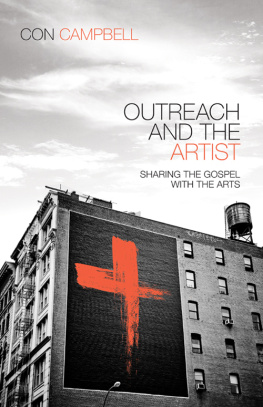
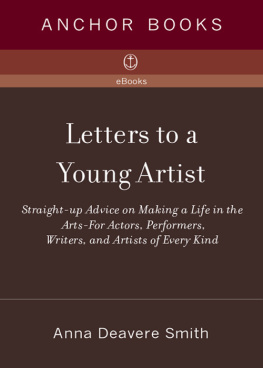
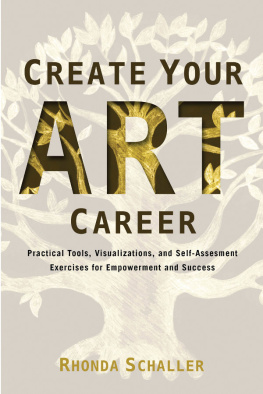
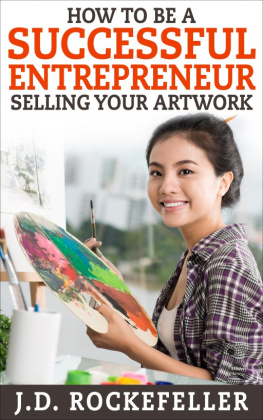
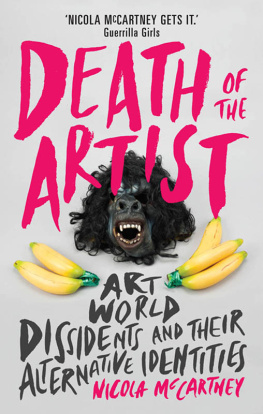
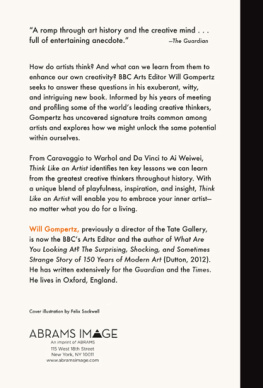
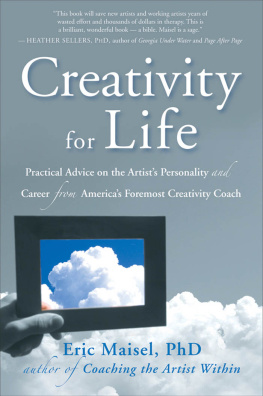

 The paper used in this publication meets the minimum requirements of American National Standard for Information SciencesPermanence of Paper for Printed Library Materials, ANSI/NISO Z39.48-1992.
The paper used in this publication meets the minimum requirements of American National Standard for Information SciencesPermanence of Paper for Printed Library Materials, ANSI/NISO Z39.48-1992.